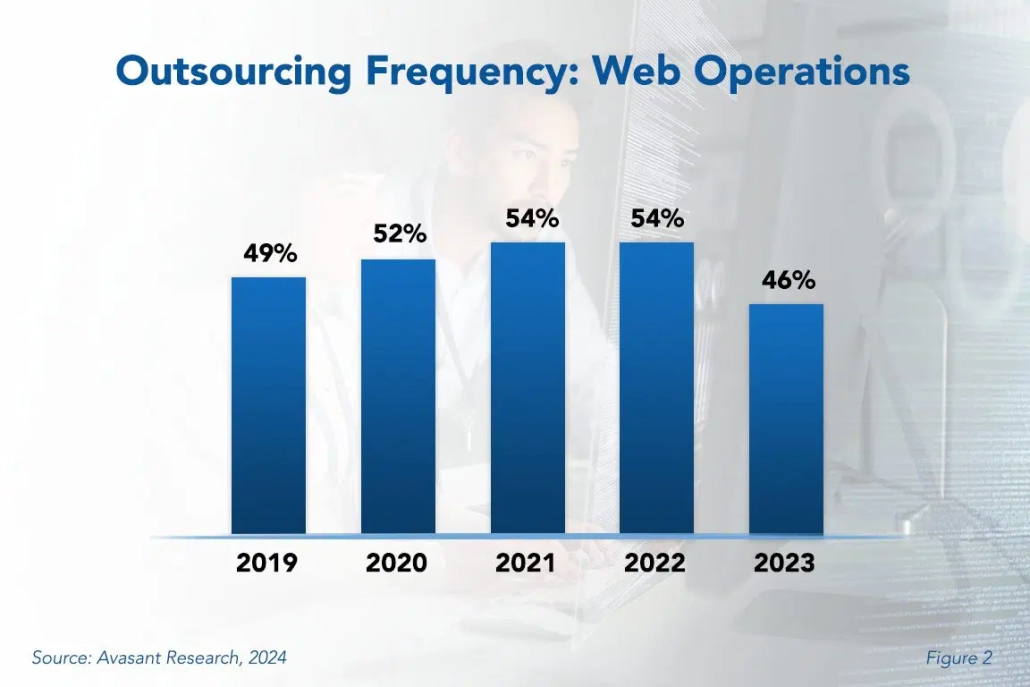Web operations outsourcing is a well-known managed service in which organizations continue to expand their efforts. This shift toward web-enabled business processes and e-commerce has prompted many companies to reassess their online strategies. Many have turned to managed service providers to deliver highly available and reliable web and e-commerce systems. However, the rise in automated solutions, and perhaps even generative AI, may have given companies the confidence to tackle these tasks on their own.
As shown in Figure 2 from our full report, Web Operations Outsourcing Trends and Customer Experience, the percentage of IT organizations that outsourced at least some of their web operations dropped significantly from 54% (2022) to 46% in 2023. This comes after years of an upward trend. In fact, the 2023 percentage is even lower than that of 2019. It, therefore, begs the question of why that might be.

Web operations outsourcing is where a service provider hosts, operates, or maintains a corporate website or e-commerce system. It may also include management of e-commerce systems such as Electronic Data Interchange (EDI) systems that are network-based but not necessarily web-based. It can also include designing and managing the website and managing web marketing operations. Moreover, the growing impact of social media has meant that online service providers must often be experts in social media marketing, as well as search engine optimization.
Despite the benefits that outsourcing this function provides, retailers are likely to see this as a business-critical function and may be inclined to keep these functions in-house. However, some industry-specific organizations may only need basic support in this area, making web operations still a good choice for outsourcing.
“Generative AI and automation really seem to be turning everything on its back,” said Waynelle John, research analyst for Avasant Research, based in Los Angeles. “Web operations outsourcing is lower now, but once the initial excitement surrounding Gen AI subsides, it will be interesting to see if a downward trend continues or if the outsourcing frequency stabilizes.”
E-commerce has become increasingly complex as its use has boomed. Communication with customers is increasingly omnichannel, and customers expect their data and preferences to follow them across those channels. E-commerce systems must interface with CRM systems, supply chain management systems, and ERP to provide real-time data for managing inventory and forecasting customer demand. E-commerce systems also include the use of web APIs that allow buyer and seller systems to communicate directly. At the same time, older EDI systems continue to be deployed, and in some industries, such as automotive, wholesale distribution, and retail, they play an important role.
To help IT executives better assess their options in this always-changing landscape, our full report analyzes the percentage of organizations outsourcing web operations (frequency), the average amount of work outsourced (level), and the change in the amount of work being outsourced (net growth trend). We also present data on cost and service experience and how these trends differ by organization size and sector. We conclude with recommendations on how to determine if outsourcing web, e-commerce, or EDI services is right for your business.
This Research Byte is a brief overview of our study, Web Operations Outsourcing Trends and Customer Experience. The full report is available at no charge for subscribers, or it may be purchased by non-clients directly from our website (click for pricing).


